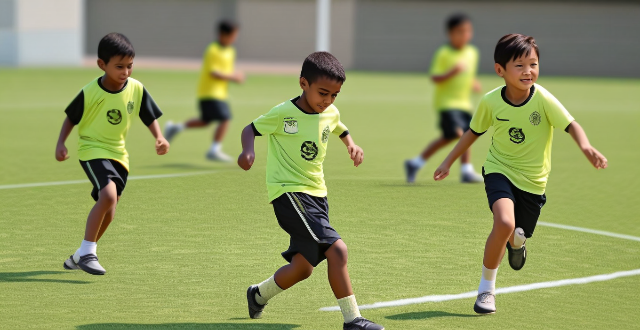Team sports provide numerous benefits for child development, including improved physical fitness, coordination and motor skills, healthy lifestyle habits, social skills, self-esteem and confidence, discipline and responsibility, goal setting and achievement, stress relief, resilience, and empathy and compassion.

Benefits of Team Sports for Child Development
Team sports are an excellent way for children to develop both physically and mentally. Here are some of the benefits that team sports can provide:
Physical Benefits
- Improved Fitness: Team sports involve a lot of physical activity, which can help improve a child's overall fitness level. This includes increased cardiovascular health, muscle strength, and flexibility.
- Coordination and Motor Skills: Through participating in team sports, children can develop their coordination and motor skills. This is because they have to learn how to control their bodies in different ways, such as running, jumping, throwing, and catching.
- Healthy Lifestyle Habits: Team sports can help instill healthy lifestyle habits in children from a young age. They learn the importance of regular exercise and maintaining a healthy weight.
Mental Benefits
- Social Skills: Team sports provide opportunities for children to interact with their peers, which can help them develop social skills. They learn how to communicate effectively, work collaboratively, and resolve conflicts in a constructive manner.
- Self-Esteem and Confidence: Participating in team sports can help boost a child's self-esteem and confidence. This is because they are able to achieve goals, improve their skills, and receive positive feedback from coaches and teammates.
- Discipline and Responsibility: Team sports require discipline and responsibility. Children must learn to adhere to rules, practice regularly, and take responsibility for their actions on and off the field.
- Goal Setting and Achievement: In team sports, children learn how to set goals and work towards achieving them. This skill can be applied to other areas of their lives, such as academics and personal pursuits.
Emotional Benefits
- Stress Relief: Physical activity has been shown to reduce stress levels. By participating in team sports, children can release pent-up energy and tension, leading to improved mental health.
- Resilience: Team sports can teach children resilience by exposing them to challenges and setbacks. They learn how to persevere through difficult situations and bounce back from failures.
- Empathy and Compassion: Through working together as a team, children can develop empathy and compassion for others. They learn to understand and care about the feelings and well-being of their teammates.
In conclusion, team sports offer numerous benefits for child development. From improving physical fitness to fostering important life skills like discipline and empathy, participating in team sports can have a positive impact on a child's growth and success.